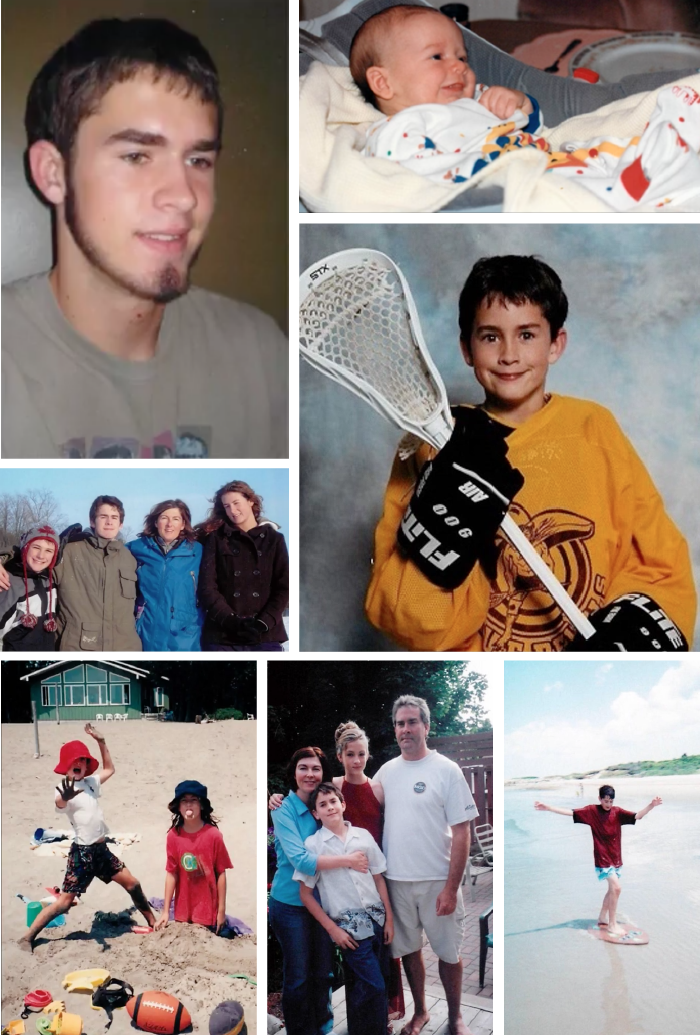Ending The Stigma Of Mental Illness, One Step At A Time
April 01, 2015
5 min read
At first, the symptoms of Tyler Maskell’s illness were subtle: sleeplessness, anxiety, and missed school days.
His mom Liane thought “it’s just the teen years hitting” and had some heart-to-heart conversations with her son.
As Tyler’s behaviour became increasingly erratic, however, it became clear to the Maskells that something was seriously wrong. A few month before his 18th birthday, Tyler was diagnosed with schizophrenia, a mental disorder that alters a person’s perception of what’s real, often leading to isolation, anxiety and disturbing thoughts.
What followed was a long struggle to get Tyler healthy. Various medications worked to varying degrees. All of them had adverse side effects.
Shortly after Tyler had turned 21, he decided he had enough. On January 8, 2013, his parents returned home to find that their son had taken his life.
“This is very hard for me to talk about,” says his mom Liane. “It’s hard to deal with something like this as a family. I can’t even begin to imagine how hard it was for Tyler.”
Shortly after Tyler’s death and with help from their community, the Maskells decided to do something to make a difference for people suffering from mental illness — and to honour Tyler’s memory.

With support from the Canadian Mental Health Association (CMHA) Oxford, the family started organizing an annual charitable walk-a-thon with proceeds going to various mental health services.
Acceptance For ‘What’s Feared’ Through Education
Now in it’s second year, the next “Time to Change Minds” walk-a-thon is taking place on May 3rd at Tyler’s old school in Woodstock, Ontario.
Many of the people who have pledged to attend this year are family members, friends and former classmates — people who knew Tyler personally.
Mental Illness In Canada
Mental illness is a widespread issue that concerns many Canadians.
Fact #1
1 in 5 Canadians will experience mental illness at some point in their life. – Canadian Institute of Health Research
Fact #2
2 in 3 people suffer in silence fearing judgment and rejection. – Canadian Medical Association
Fact #3
Suicide accounts for 24% of all deaths among 15-24 year-olds. – CMHA
But just as many will join the walk to show solidarity for the cause or because they have experienced mental illness in their own family, says Liane.
“We ask people to do some rounds on the track that goes around the school, but it’s really not about who walks the most. It’s about the people who come out that day and it’s about raising awareness and about education,” Liane Maskell says.
Education about mental illness is especially important to Liane. To her, talking about mental health and sharing knowledge is key to a greater understanding of mental illness in our society.
“People who have been labeled with a mental illness are scared of how they are perceived by others. They are afraid that somebody tells them ‘don’t be such a psycho or schizo’ and that’s a cultural problem we need to address.”
Raising Awareness Just As Important As Treatments
To make a difference for people going through a similar experience as Tyler, Liane has made it her goal to support organizations involved in advocacy, education and suicide prevention. The Maskell’s first walk-a-thon raised over $25,000, which went to various organizations in need of funding.
“We didn’t just give to one charity. It pretty much went to organizations and areas that wouldn’t have gotten any money otherwise,” says Liane.
“A lot of it has gone to education and suicide intervention training. And to the Woodstock Hospital, so that they can offer YMCA passes to patients. We even funded bus service to a Christmas supper at the CMHA. Socializing, physical health — it’s all directly connected to mental wellness.”
One of the organizations who has benefited from the Maskell’s fundraiser is the CMHA Oxford.
Executive Director Mike McMahon says that working together with Liane has been a great opportunity to connect with community members and has provided his organization with money to raise awareness for mental illness.
“All our government funding has to go towards direct health services. If we want to do advocacy we have to rely on people like Liane.”
In his job, Mike witnesses the stigma of mental illness on a regular basis: patients paralyzed with fear that anyone finds out about what they are going through and parents scared of talking about — or even acknowledging — their son’s or daughter’s illness. Sometimes, he says, he finds it “difficult to watch” how fear of mental illness and societal judgement takes a heavy toll on patients and family members.
“I believe that 20 years from now, hopefully even less, mental illness will be treated like any other disease, so that people don’t have to be scared to seek out treatment,” Liane says.
“Education couldn’t have made Tyler healthy, but it can change our attitudes towards mental illness. Education is acceptance and acceptance is healing.”
